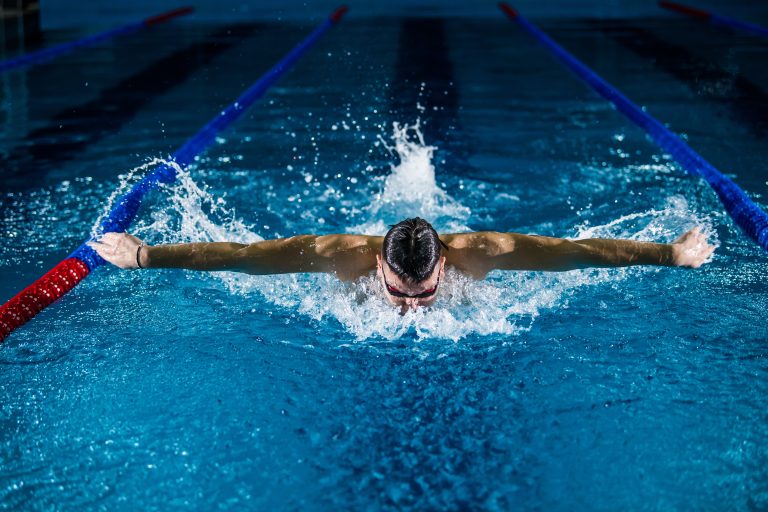How to Learn Karate at Home for Beginners
Learning karate can be an enjoyable way to stay fit, relieve stress, and improve your overall health. It is an ancient martial art that originated in Japan and is now practiced all over the world. Karate combines physical and mental training to improve strength, balance, flexibility, and focus.
If you are interested in learning karate but are unable to attend a traditional class, you can still learn karate from the comfort of your home. In this article, we will provide you with some tips on how to learn karate at home for beginners.
1. Choose a Suitable Karate Learning Resource
To learn karate at home, you need to have a reliable learning resource. You can opt for books, online videos, or DVDs to learn karate basics. Ensure that the material you choose is well-documented, suits your skill level, and offers systematic training.
One of the most popular karate training resources is the book, „The Karate Handbook“ by Ray Pawlett. It is a comprehensive guide that covers the basics of karate, including stances, kicks, and punches.
Another excellent karate learning resource is online tutorials. Some popular platforms like YouTube and Udemy offer virtual karate classes for beginners. These platforms provide easy access to quality karate training videos that can be viewed on any device.
Whatever learning resource you choose, be sure to follow the instructions carefully and practice regularly.
2. Create Enough Space for Training at Home
Before starting karate lessons, ensure that the space in your home is adequate for training. Karate requires plenty of space for you to execute kicks and punches, and you don’t want to injure yourself or damage your surroundings.
Clear the area of any tripping hazards or sharp objects. The ideal space for karate lessons should be well-ventilated and free of distractions.
3. Warm Up Before Any Karate Practice
Karate involves lots of physical movement, so you should always warm up before starting any practice session. This will increase your blood flow, loosen your muscles, and prevent injury.
You can get your body warmed up by doing some simple exercises like jumping jacks, push-ups, or jogging in place. Once you are warmed up, you can then move on to karate-specific stretching exercises.
4. Practice Basic Karate Stances and Techniques
When learning karate at home, you should start with the basics. This includes stances like zenkutsu dachi, kiba dachi, and neko ashi dachi. Familiarize yourself with these stances before moving on to the more complex techniques.
In karate, techniques involve kicks, strikes, blocks, and throws. Focus on one technique at a time until it becomes second nature. Ensure that you practice regularly and that you are following the correct technique.
5. Join an Online Karate Community
Joining an online karate community is a great way to meet other karate enthusiasts and get feedback on your techniques. Online karate communities can provide you with the support and resources you need to improve your karate skills.
There are several online karate communities available on social media platforms such as Facebook, Twitter, and Instagram. Joining one of these communities can help you stay motivated and learn from like-minded individuals.
6. Seek Feedback from an Experienced Karate Practitioner
Seeking feedback from experienced karate practitioners can help you improve your technique and form. You can find experienced karate practitioners through online communities, classes at a dojo, through social media, or by connecting with them directly.
When seeking feedback, be open to constructive criticism and take it as an opportunity to learn and improve your karate skills.
FAQ: How to Learn Karate at Home for Beginners?
For those who are unable to access regular karate training classes, or those who prefer the comfort of their homes, learning karate at home can be a viable solution. In this post, we will answer some of the most frequently-asked questions about how to learn karate at home for beginners.
Q1: Is it Possible to Learn Karate at Home for Beginners?
The simple answer is yes, it is possible to learn karate at home, especially in the age of the internet. There are several online courses, videos and tutorials available that can help you get started. However, it is important to bear in mind that nothing can substitute in-person training with a qualified instructor. Practicing martial arts at home can be a great supplement to regular training, but it should not replace it altogether.
Q2: What Do I Need to Get Started with Learning Karate at Home?
While you don’t need much to get started with learning karate at home, there are a few essentials that you should consider:
- A space to train: Choose an open space with enough room for you to move around comfortably. Ideally, it should be free of any sharp or dangerous objects that could cause injury.
- Karate uniform: A karate uniform or gi is important to wear during your practice sessions. It allows your movements to be visible, and it gives you a sense of discipline and respect for the art.
- Training equipment: While it is not necessary, having some basic training equipment like focus mitts, punching bags, or a skipping rope can help you add variety to your training.
- Online resources: There are many online resources available to beginners, such as books, videos, and tutorials. Research and choose the ones that suit your needs and goals.
Q3: How Do I Begin My Karate Journey at Home?
One of the best ways to begin your karate journey at home is by finding a reputable online course or tutorial series that covers the basics. It can be helpful to start with the fundamentals, such as basic karate stances, punches, and kicks. It is important to take the time to practice these basic techniques until you feel comfortable and confident performing them.
Q4: How Often Should I Practice Karate at Home?
Consistency is key when it comes to learning karate at home. Regular practice sessions are recommended, and it is best to train at least three to four times a week, if possible. Set a schedule and stick to it to develop a routine.
Q5: Can I Learn Karate Forms at Home?
Forms, or kata, are a series of movements practiced in a predetermined sequence. While it is possible to learn karate forms at home, it can be challenging without a qualified instructor to provide guidance and correction. Practicing forms without proper instruction can lead to bad habits and incorrect technique, which can be difficult to unlearn later on. However, if you are unable to attend classes and are committed to learning forms at home, it is best to start with the basic forms and progress gradually.
Q6: How Can I Ensure Safety While Practicing Karate at Home?
Practicing karate at home can come with some risks, especially if you are practicing alone. Here are some safety tips to keep in mind:
- Warm-up before each practice session to prevent injury.
- Avoid practicing near sharp objects or surfaces.
- Always practice within your skill level and avoid attempting advanced techniques until you are ready.
- Practice with a partner, if possible, to ensure safety and to receive feedback on your technique.
- Always wear proper protective gear, such as gloves or shin guards, when practicing with a partner or using equipment.
How to Learn Karate at Home for Beginners
Introduction
If you are interested in learning the martial art of karate but have no idea where to start, then this guide is for you. Karate is not just a physical activity, it is also a discipline that strengthens the mind and builds character. In this post, we will go through some of the basics of learning karate at home for beginners.
Step 1: Understand the Basics
Before beginning your karate journey, it’s important to understand the basics of the sport. Karate involves various techniques such as punches, kicks, and blocks, along with proper stance, breathing, and meditation techniques. Knowing and mastering these basic moves is key to advancing to more complex techniques.
Step 2: Find a Martial Arts School
While it is possible to learn karate at home, it is always better to join a martial arts school. Joining an established school means that you will have access to experienced senseis who can guide you on your journey. You will also have access to a supportive community of fellow students who can help you stay motivated and improve your abilities.
Step 3: Observe and Learn
Before you start training, take some time to observe how the more experienced students train. Getting used to the environment and etiquette of karate is important if you wish to learn it in its entirety. Once you’re comfortable, start by focusing on basic moves and gradually build your skill set. Repetition is key to mastering the moves, so be patient and dedicated.
Step 4: Practice Regularly
Like any other sport or discipline, regular practice is key to success in karate. A beginner should aim to spend at least 15-20 minutes each day practicing some of the basic moves. As you progress, increase the time spent on training and focus on perfecting the techniques to make them more effective.
Step 5: Build Strength and Flexibility
Karate requires a lot of strength and flexibility, so it is important to focus on building both. Incorporate exercises that help build strength in your core, upper and lower body. Stretching exercises and practicing kicks will also help improve your flexibility necessary for kicks to be higher and more effective.
Step 6: Learn the Philosophy of Karate
Karate is not just a sport, it’s a way of life. It is important to understand the values and principles that underlie karate. Focus and discipline will be required to succeed in this sport. Karate cultivates a strong sense of respect, self-discipline, and humility. Learn and embody these principles to achieve success both inside and outside the dojo.
Conclusion
Learning karate at home is a great way to start one’s journey in martial arts. However, it is always better to join a reputable martial arts school to learn under the guidance of experienced senseis. Remember to be patient and disciplined in your training, as regular practice and dedication are key to becoming a skilled karate student.
Inhaltsverzeichnis






